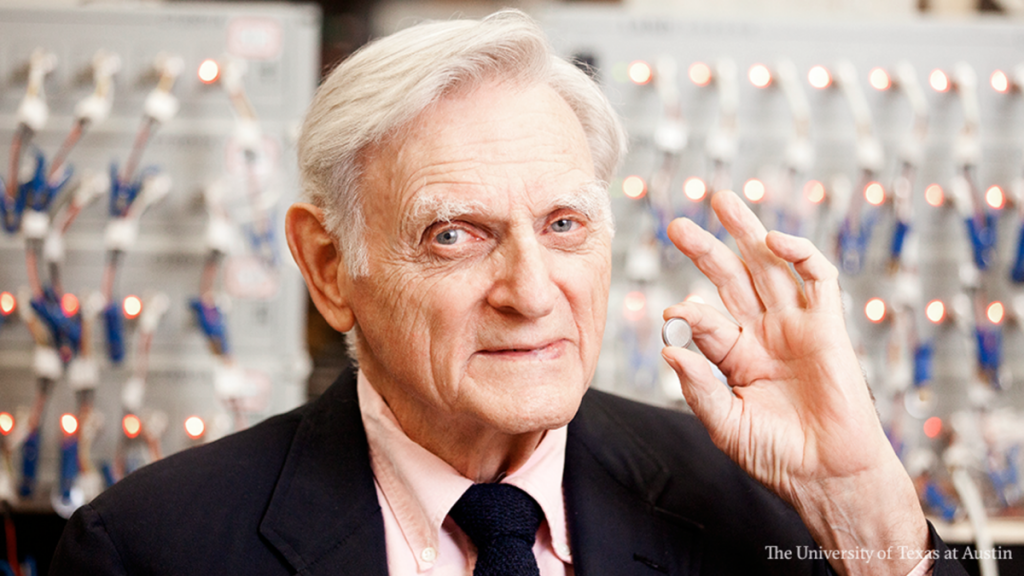
The University of Texas at Austin has a new Nobel Prize winner in chemistry: John B. Goodenough, a professor in the Cockrell School of Engineering.
The Royal Academy of Sciences Wednesday awarded the 2019 Nobel Prize in Chemistry to Goodenough along with Stanley Whittingham of the State University of New York at Binghamton and Akira Yoshina of Meijo University “for the development of lithium-ion batteries.”
“They created a rechargeable world,” according to a news release. Lithium-ion batteries power everything from laptops and cell phones today to electric vehicles.
The Nobel Foundation cited the researchers’ work for creating “the right conditions for a wireless and fossil-fuel-free society, and so brought the greatest benefit to humankind.”
Goodenough, 97, is the oldest person to receive the Nobel Prize, according to the New York Times.
Stanley Whittingham laid the foundation of the lithium-ion battery in the 1970s during the oil crisis. He made a lithium-ion battery but the“battery was too explosive to be viable,” according to the Nobel Foundation. In 1980, John Goodenough demonstrated that “cobalt oxide with intercalated lithium ions can produce as much as four volts. This was an important breakthrough and would lead to much more powerful batteries.”
And in 1985, Akira Yoshina created the first commercially viable lithium-ion battery, “resulting in a lightweight, hardwearing battery that could be charged hundreds of times before its performance deteriorated,” according to the Nobel Foundation.
“Billions of people around the world benefit every day from John’s innovations,” Gregory L. Fenves, president of The University of Texas at Austin and former dean of the Cockrell School said in a news release. “In addition to being a world-class inventor, he’s an outstanding teacher, mentor and researcher. We are grateful for John’s three decades of contributions to UT Austin’s mission.”
“Live to 97 (years old) and you can do anything,” Goodenough said in a news release. “I’m honored and humbled to win the Nobel prize. I thank all my friends for the support and assistance throughout my life.”
“Goodenough began his career at the Massachusetts Institute of Technology’s Lincoln Laboratory in 1952, where he laid the groundwork for the development of random-access memory (RAM) for the digital computer,” according to a news release. “After leaving MIT, he became professor and head of the Inorganic Chemistry Laboratory at the University of Oxford. During this time, Goodenough made the lithium-ion discovery.”
